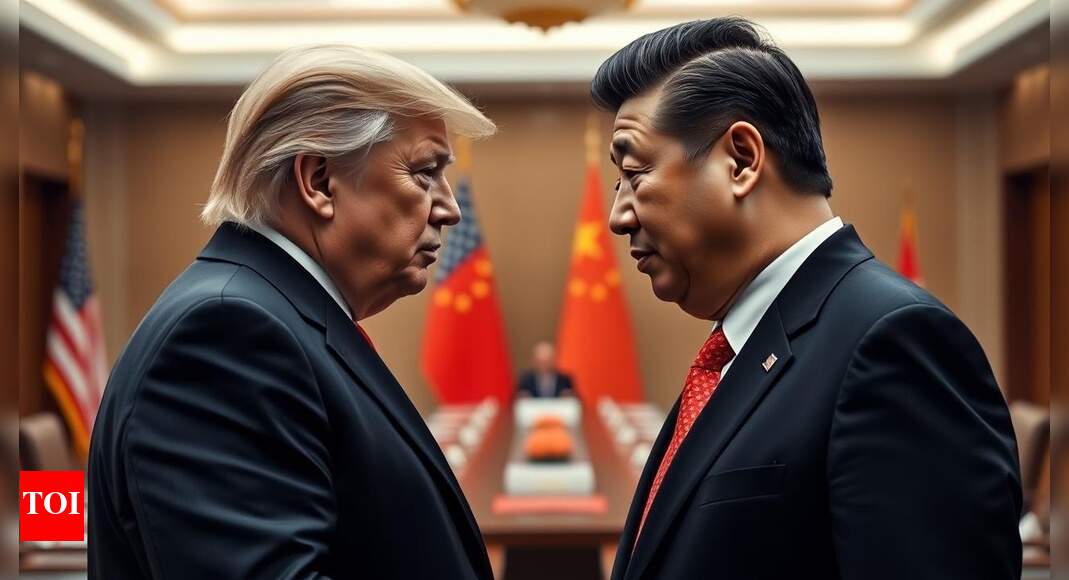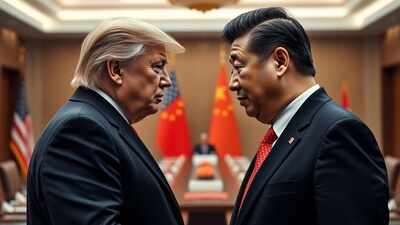
In a critical juncture for US-China trade relations, officials from both nations are working to resolve their differences and potentially reach a trade agreement that could prevent the imposition of severe tariffs. However, a significant sticking point reportedly remains- the US demand for China to cease purchasing oil from Iran and Russia. China’s Foreign Ministry took to X on Wednesday, following two days of trade negotiations in Stockholm, to assert its stance. “China will always ensure its energy supply in ways that serve our national interests,” the ministry stated, responding to the US threat of a 100 per cent tariff. The ministry further emphasized, “Coercion and pressuring will not achieve anything. China will firmly defend its sovereignty, security and development interests.” This response comes at a time when both Beijing and Washington are expressing optimism about reaching a deal to stabilize commercial ties between the world’s two largest economies. US Treasury Secretary Scott Bessent, speaking to reporters after the talks, acknowledged China’s firm stance on its sovereignty. “The Chinese take their sovereignty very seriously,” Bessent said, as quoted by the Associated Press. He added, “We do not want to impede on their sovereignty, so they would like to pay a 100 per cent tariff.” Despite the challenges, Bessent remains hopeful about the negotiations. “I believe that we have the makings of a deal,” he told CNBC, describing the Chinese as “tough” negotiators. Gabriel Wildau, managing director of consultancy Teneo, expressed skepticism about the US following through with the 100 per cent tariff threat. “Realising those threats would derail all the recent progress and probably kill any chance” for a trade deal announcement between President Donald Trump and Chinese President Xi Jinping, Wildau noted. The US aims to restrict oil sales by Russia and Iran to reduce funding for their militaries, as Moscow continues its war against Ukraine and Tehran supports militant groups in the Middle East. China’s firm stance is not new. When Trump announced a broad tariff plan in April, China was the only country to retaliate. “If the US is bent on imposing tariffs, China will fight to the end,” said Tu Xinquan, director of the China Institute for WTO Studies in Beijing, quoted by AP.Scott Kennedy, a senior adviser at the Centre for Strategic and International Studies, suggested that Beijing might use the situation as leverage to gain more concessions from Trump. Meanwhile, Danny Russel of the Asia Society Policy Institute remarked that Beijing sees itself as “the one holding the cards” in its dealings with Washington. China’s continued oil purchases from Russia and Iran are crucial for its strategic energy supply. A 2024 report by the US Energy Information Administration indicates that a significant portion of Iran’s oil exports go to China, which imports over one million barrels of Iranian oil daily. Additionally, China is a major customer for Russian oil, second only to India. The ongoing negotiations and China’s firm stance underscore the complexities of US-China trade relations, with energy policies playing a pivotal role in the discussions.








